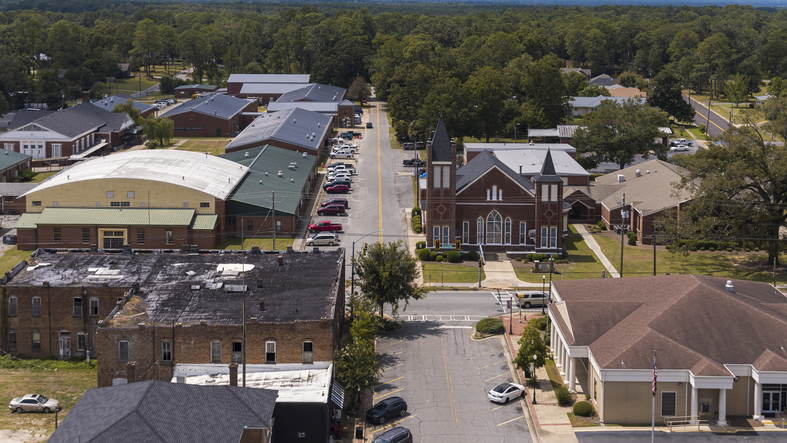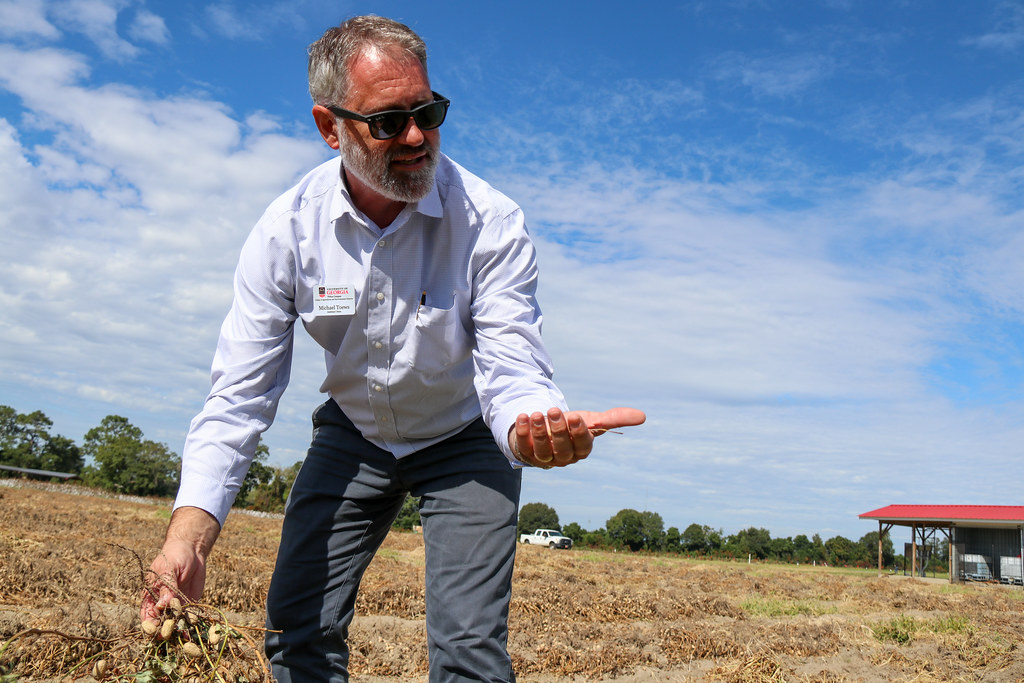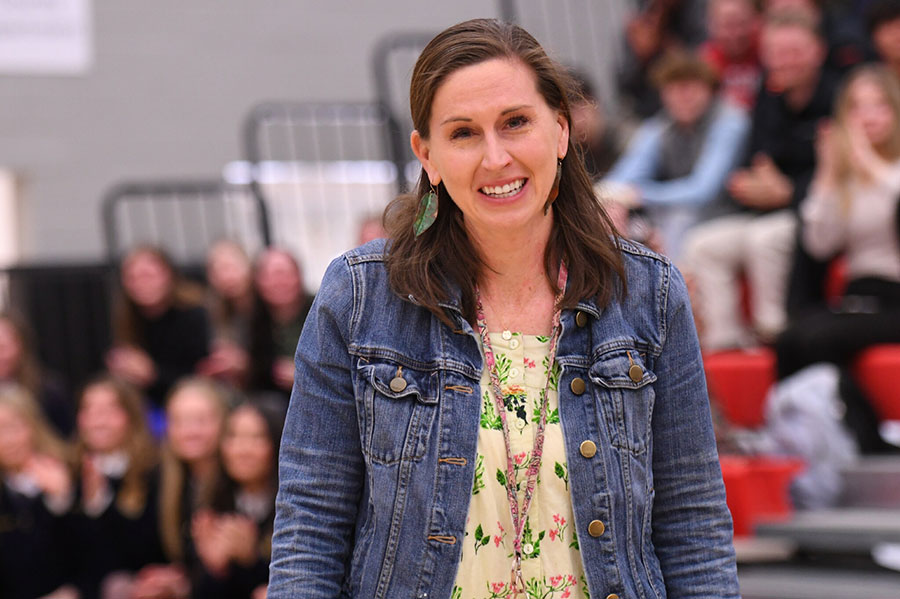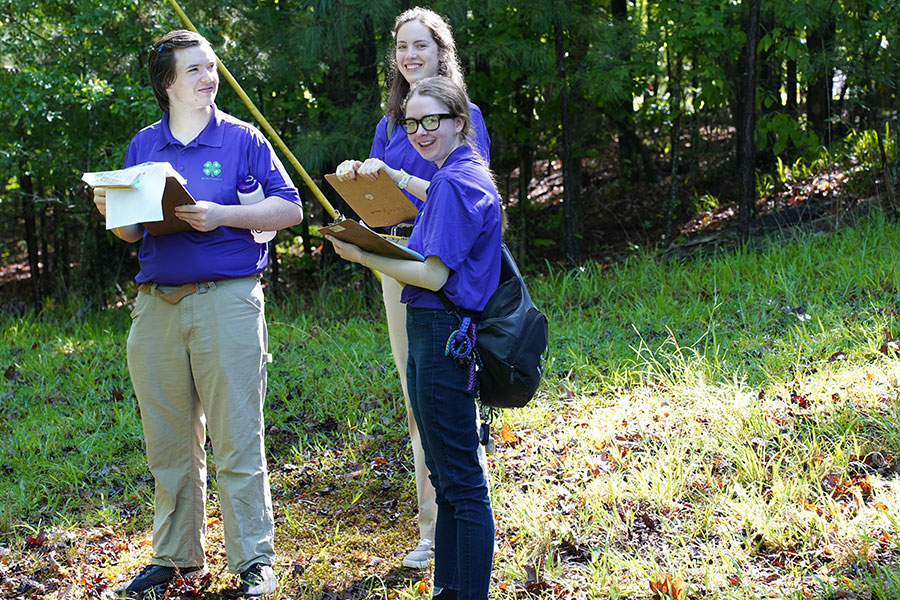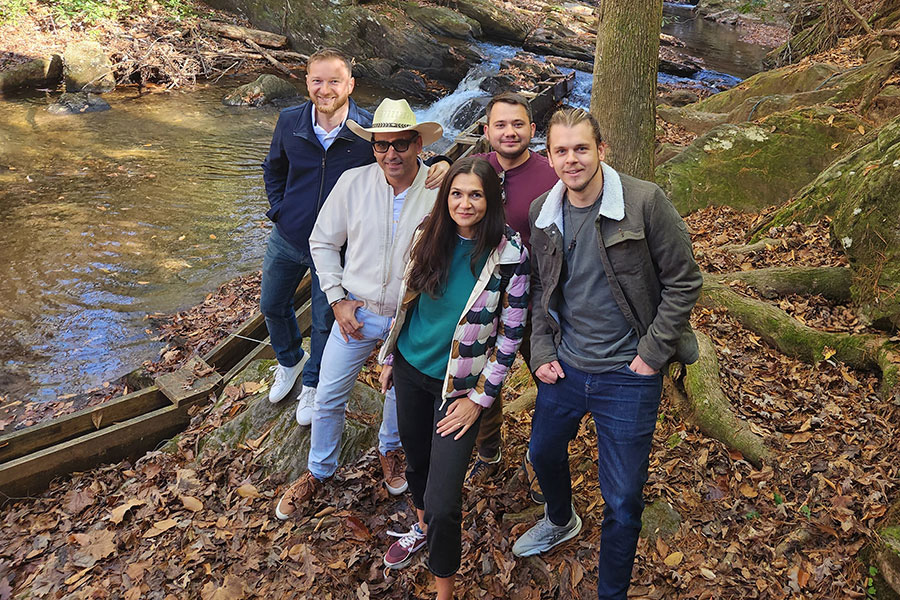
Building on the strong foundation established with the first cohort of Romanian-American Foundation (RAF) Fulbright Scholars at the University of Georgia’s College of Agricultural and Environmental Sciences, a second slate of scholars recently completed a four-month fellowship with UGA Cooperative Extension to gather insight and inspiration for establishing extension services in the eastern European nation.
Hailing from agricultural universities around the country, the second cohort of scholars included Lecturer Igori Balta and Assistant Professor Ștefan Bătrîna from the University of Life Sciences “King Michael I” in Timișoara; Assistant Professor Horia Ciocan from the University of Agricultural Sciences and Veterinary Medicine in Bucharest; Associate Professor Paula Moraru from the University of Agricultural Sciences and Veterinary Medicine in Cluj-Napoca; and Dragoș Săcăleanu, a lecturer at National University of Science and Technology Politechnica Bucharest. Representatives from six Romanian universities have visited UGA as RAF Scholars since the program began in 2023.
Program director Abigail Borron, associate professor in the Department of Agricultural Leadership, Education and Communication at CAES, has spearheaded the program, whose ultimate goal is to increase the productivity and income of small and medium farms and agribusinesses through improved production practices, value-added production and increased market access.
“While we are only completing the second year of the program, now totaling 10 participating Romanian scholars, we already see the network growing beyond just those 10. Aside from Romanian university administrators generating conversation and initiative to move efforts forward, the scholars are successfully generating awareness and interest among their colleagues,” Borron said. “In addition, we’re beginning to see some collaborative development among UGA Extension specialists and Romanian scholars. It’s a win-win situation and we’re excited to see how the program continues to develop over the next few years.”
While about a third of Romania’s land is devoted to agriculture, many are small subsistence farms owned by families. Decades of political upheaval, including the communist rule from 1948 to 1989, resulted in a disconnect between small farmholders and the knowledge available through the nation’s agricultural universities.
A growing international partnership
The 2024 RAF scholars bring a range of expertise from agricultural management and rural development to molecular biology and engineering.
Trained as an engineer, Săcăleanu, whose research focuses on wireless sensor networks and Internet of Things (IoT) systems with applications in the agricultural field, was drawn to the program by UGA’s growing expertise in integrative precision agriculture.
“From my point of view, I was seeking interdisciplinary engagement and collaboration with colleagues in agricultural universities to identify potential technology that will benefit them. As an engineering college, we have to do things differently than an agricultural university, but I have seen a lot of technology that has been developed in-house at UGA, including electronic sensors and computer algorithms, that would be beneficial to producers,” said Săcăleanu.
With bachelor’s degrees in business and electronics and computer systems engineering, followed by a doctorate in electronics and telecommunications, Săcăleanu returned to his hometown in northern Romania after his education to establish an organic walnut orchard while researching the development of sensor systems for agriculture.
“Our orchard is uncommon because the variety we are raising is from California, it was developed at University of California-Davis, and because it has a super intensive production model with 400 trees per hectare,” he said.
His entrée into farming was the impetus for his return to university to earn a master’s degree in ecological horticulture science in 2022. “It started as a passion to acquire information and has grown. I wanted the opportunity to see a program at UGA that really focuses on the importance of technology in agriculture,” he added.
Bringing university research to farm communities
Ciocan, who has a doctorate in rural development, has a full teaching position at his university but wants to expand his scope to include applied research specifically targeted to help producers in Romania.
“About 40% of what I do could be considered extension already, but it is not formalized. We as universities need that, not just for the community, but to keep academics connected to communities to address real challenges and problems,” he said, adding that his proposal for the Fulbright program included educating farmers on commodity markets to enable them to make sound financial decisions when selling their crops.
An expert in sustainability and resource conservation science, Moraru was most interested in how Extension is used as a conduit for sharing research information with farmers.
“We need to take the applied research found in our research programs and explain how it can be applied in the private sector on farms. We need to test new technologies and then be able to implement them,” Moraru said, adding that she was impressed by the connections between UGA researchers, industry and producers around a common subject or commodity. “I would like to bring that idea home with me. If we can share information that is good for the community, everyone can benefit.”
As research faculty in food microbiology, foodborne pathogens and molecular biology, Balta spends most of his time in the lab but hopes to expand his work with industry, particularly in the area of developing natural antimicrobial compounds. Balta explained that, through UGA Extension, he saw a blueprint to working with communities and for greater society.
“Participating in this program has improved my communication skills in different situations and with different people and gave insight on how we can start an extension program by working with industry,” he said.
Translating science for rural development
From the same university as Balta, Bătrîna has had a personal interest in traveling to the U.S. since he was a child watching American Westerns on the farm where he grew up.
A specialist in phytotechnics and industrial plants, Bătrîna is focused on improving the production quality and quantity of Camelina sativa and other oil crops including rapeseed and sunflower, as well as row crops including wheat, barley, oats and corn.
Raised on a vegetable farm started by his father 30 years ago, Bătrîna said it was natural to pursue a field that would allow him to improve agricultural practices for his and other farming families.
“I realize how much help small farmers need and how important agricultural education should be, not just as a career path from agricultural high school to universities, but for every high school and middle grader,” said Bătrîna, who has served as an advisor to Romania’s Ministry of Agriculture to help bridge the gap between academic research and practical agricultural applications. “Above all, I am a farmer. I know how important small producers are for communities. We need to figure out how we can translate our science for their benefit.”
CAES Dean and Director Nick T. Place said the program is an example of international academic, research and Extension programs that boost the college’s reputation and influence at home and abroad.
“This partnership offers CAES a unique opportunity to share UGA Extension’s expertise in agricultural innovation, community development and outreach. By collaborating with Romanian educators and practitioners, we not only help strengthen the future of their local systems but also gain valuable insights into international approaches to Extension work,” Place said. “This exchange fosters a global perspective, enriching CAES programs and enhancing our role as a leader in extending knowledge and solutions to communities worldwide.”



